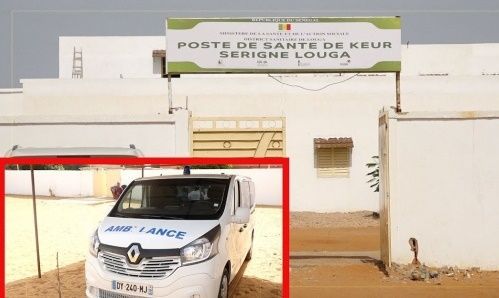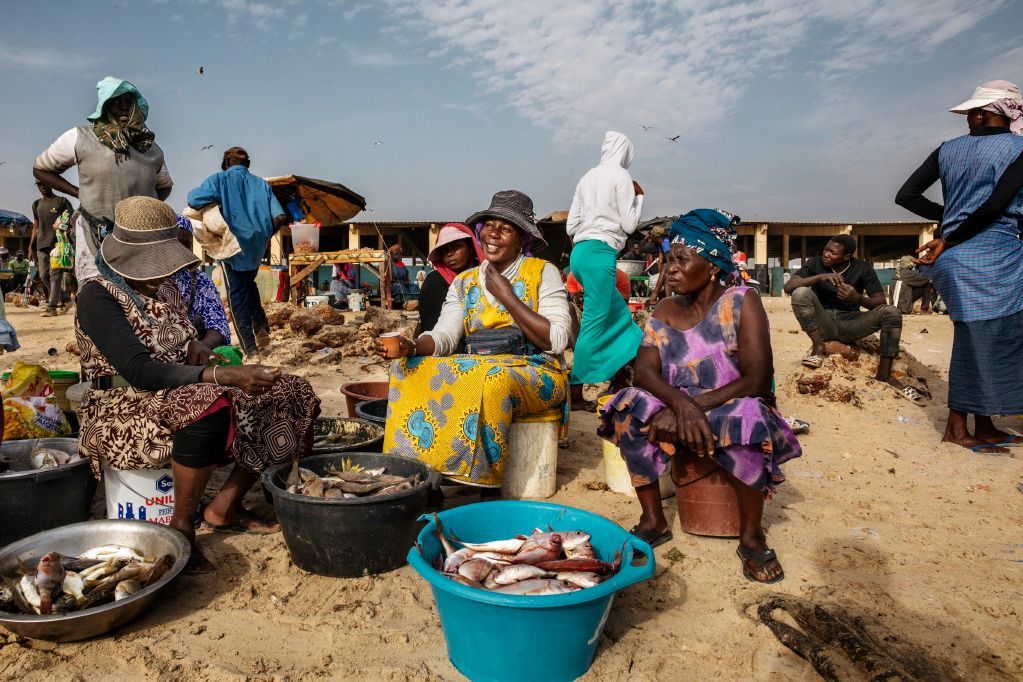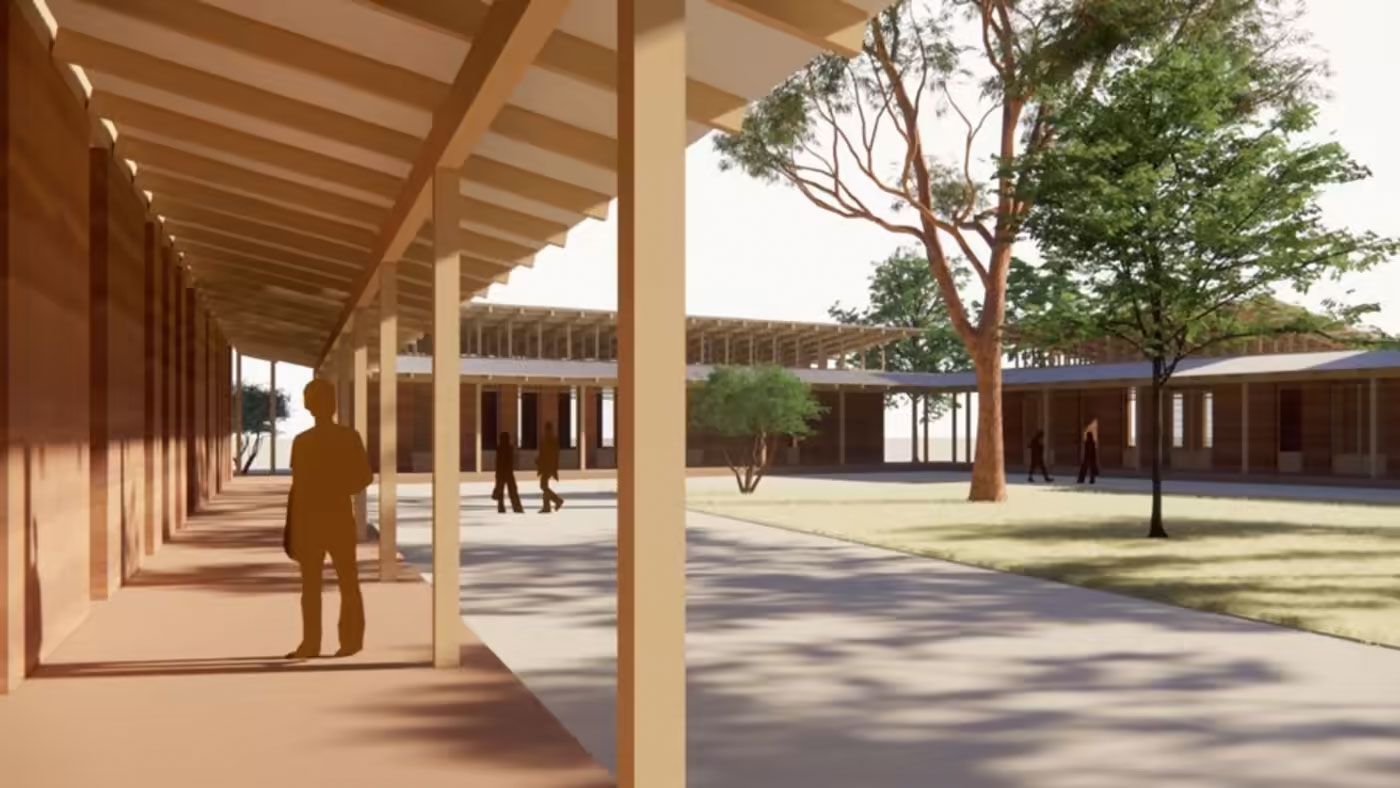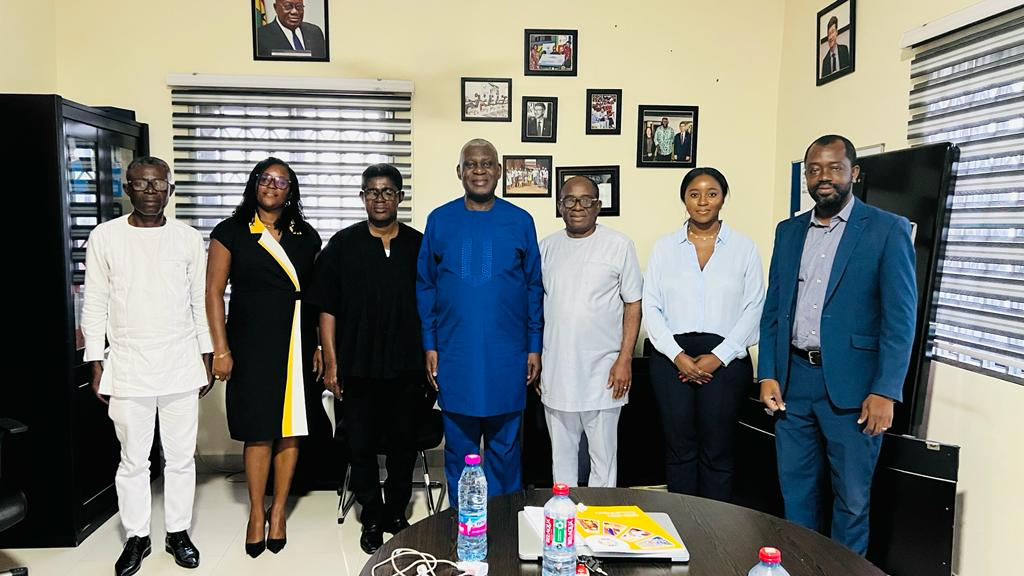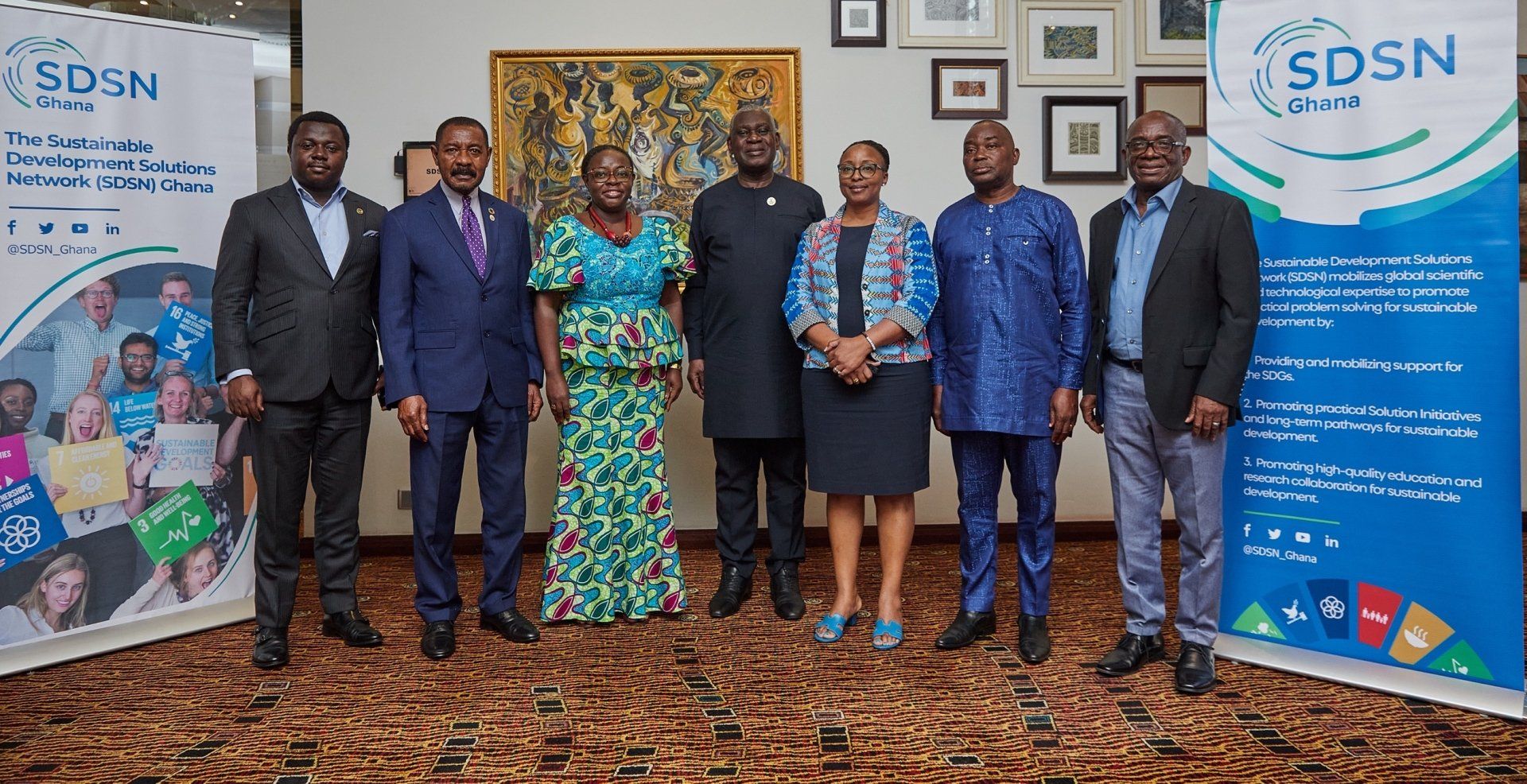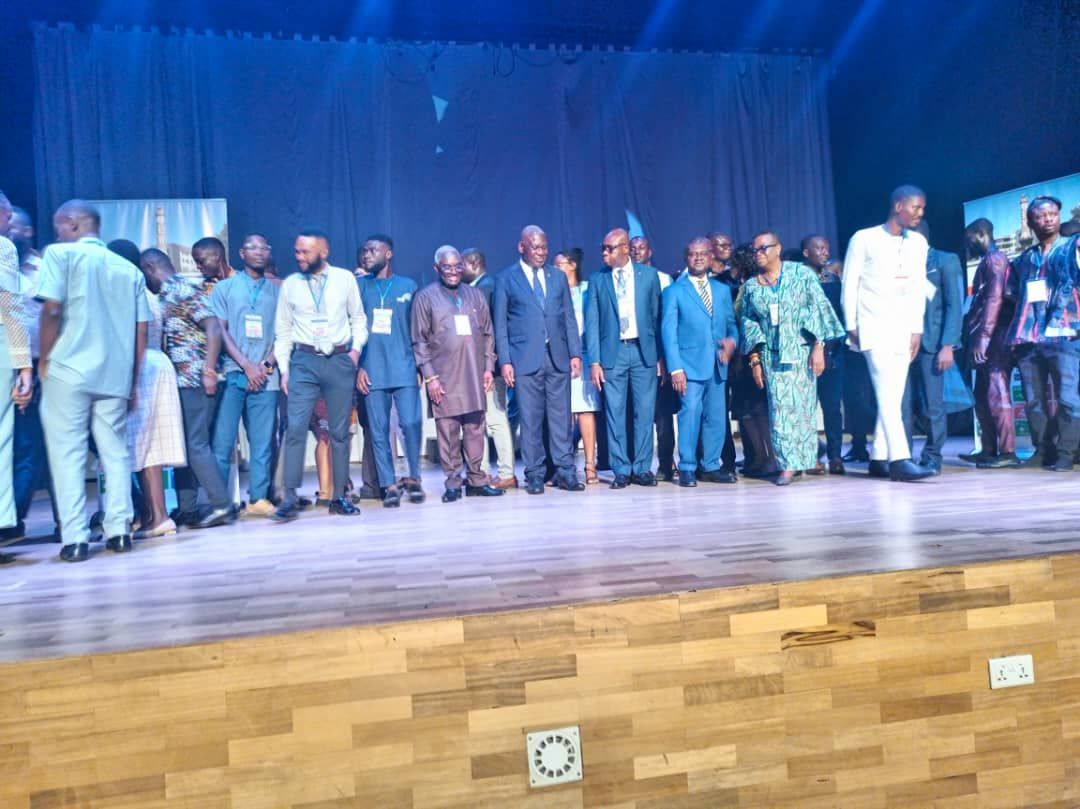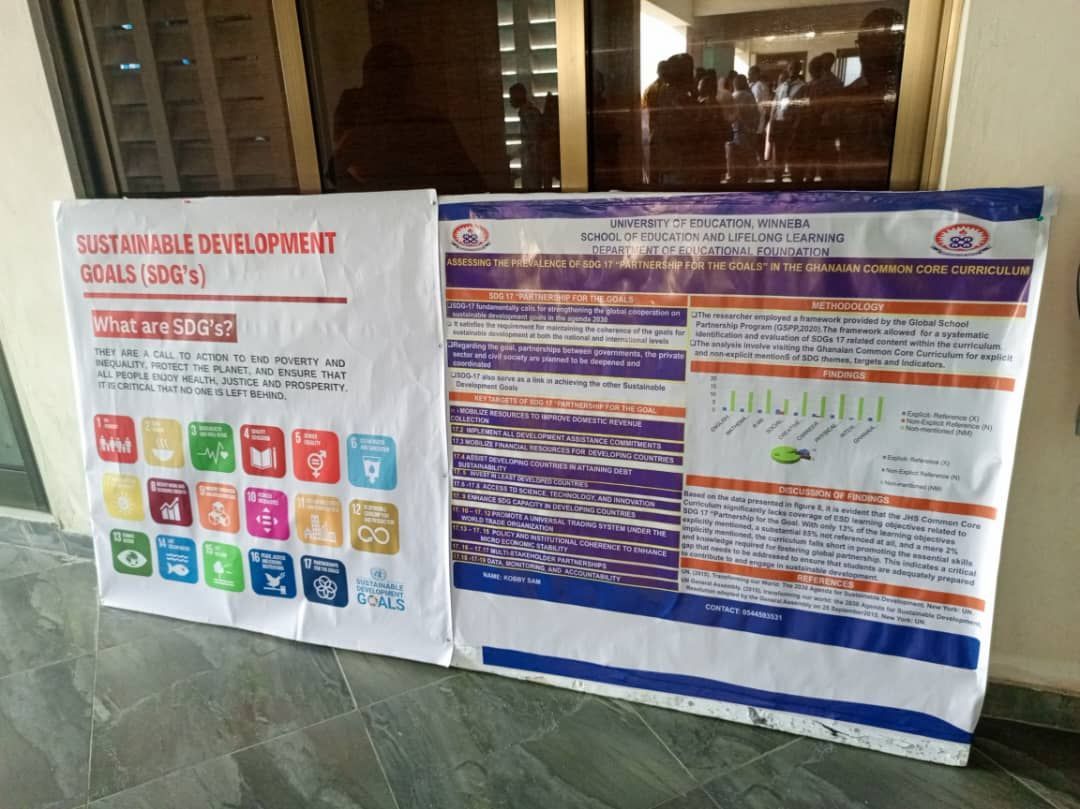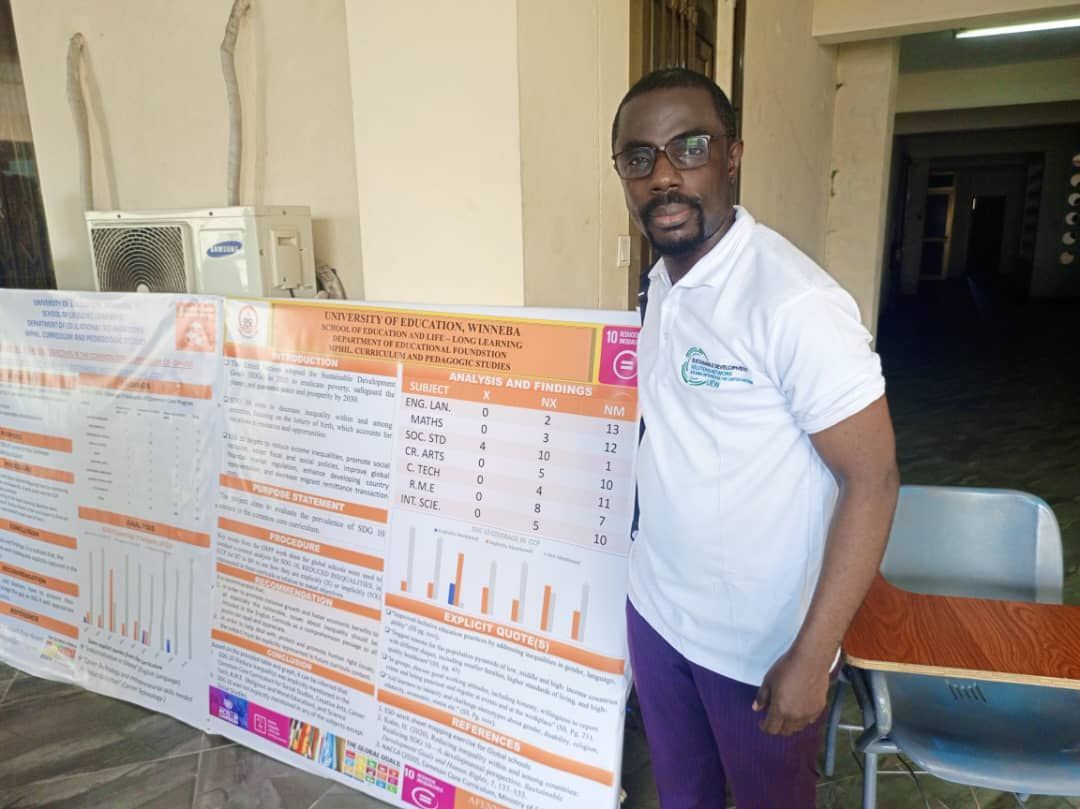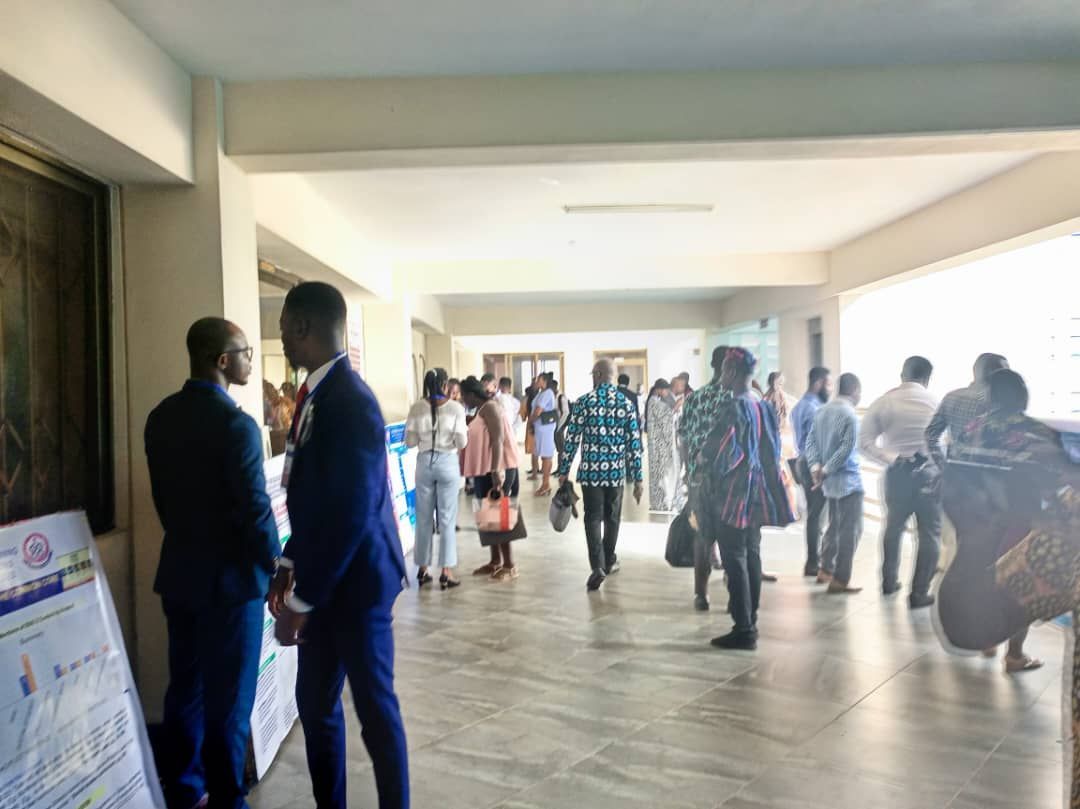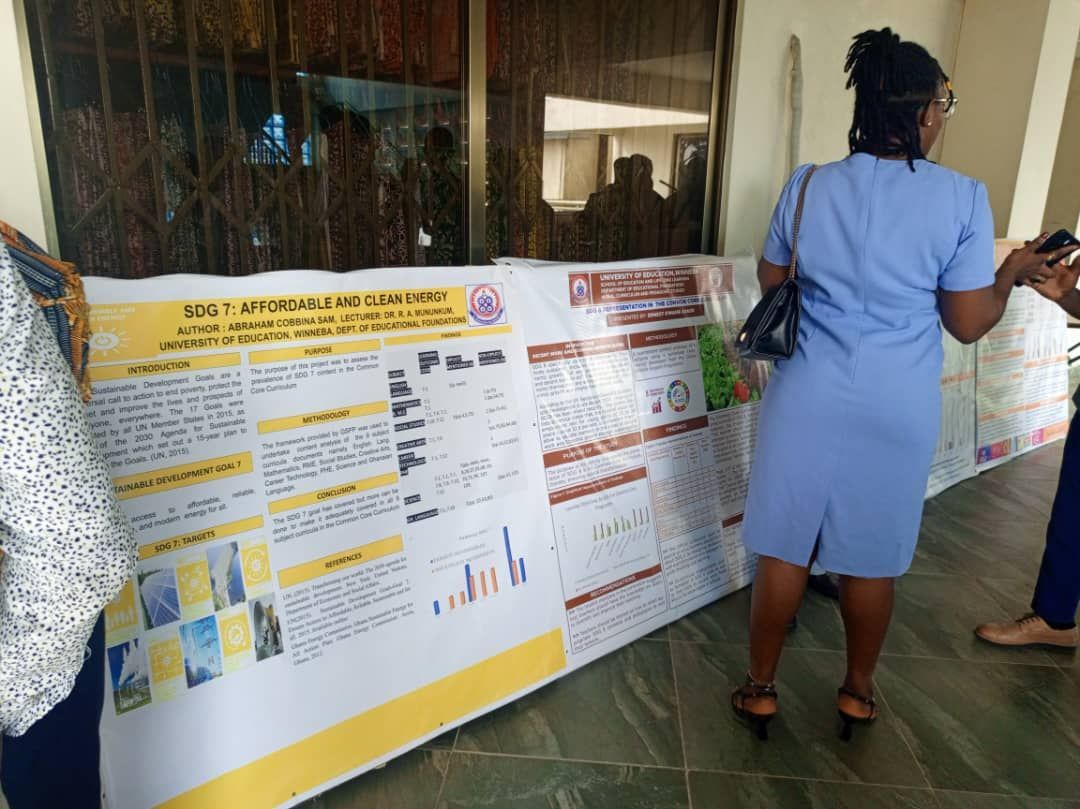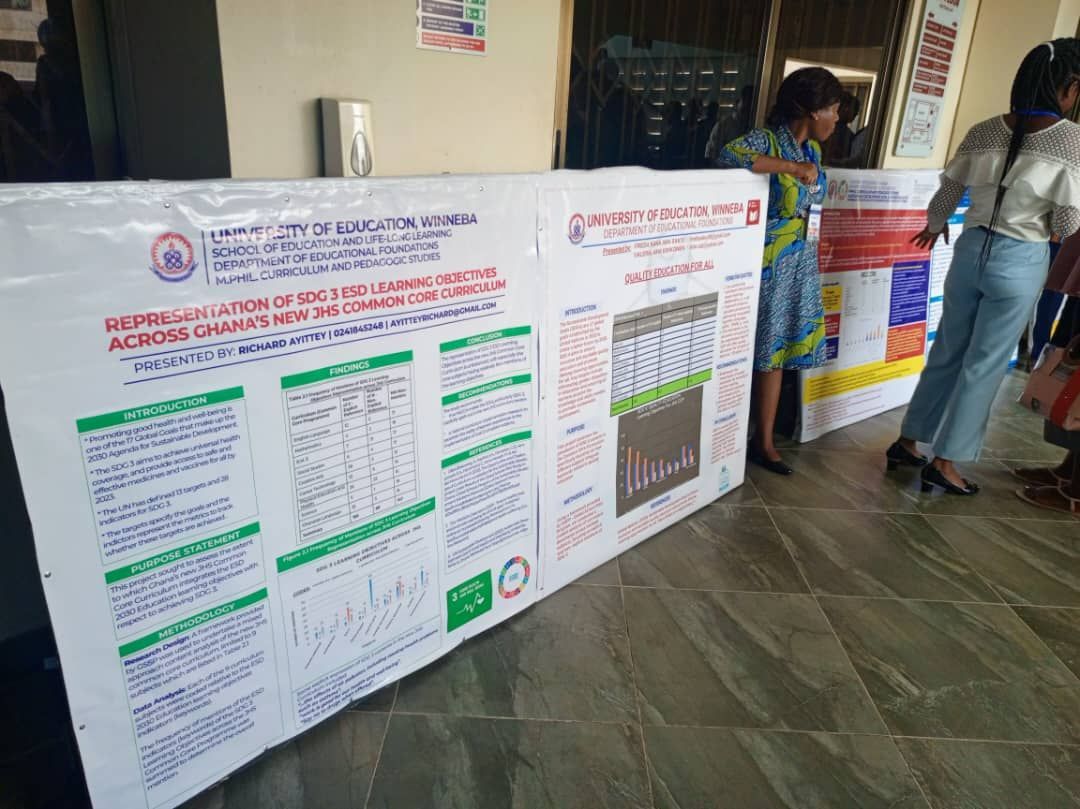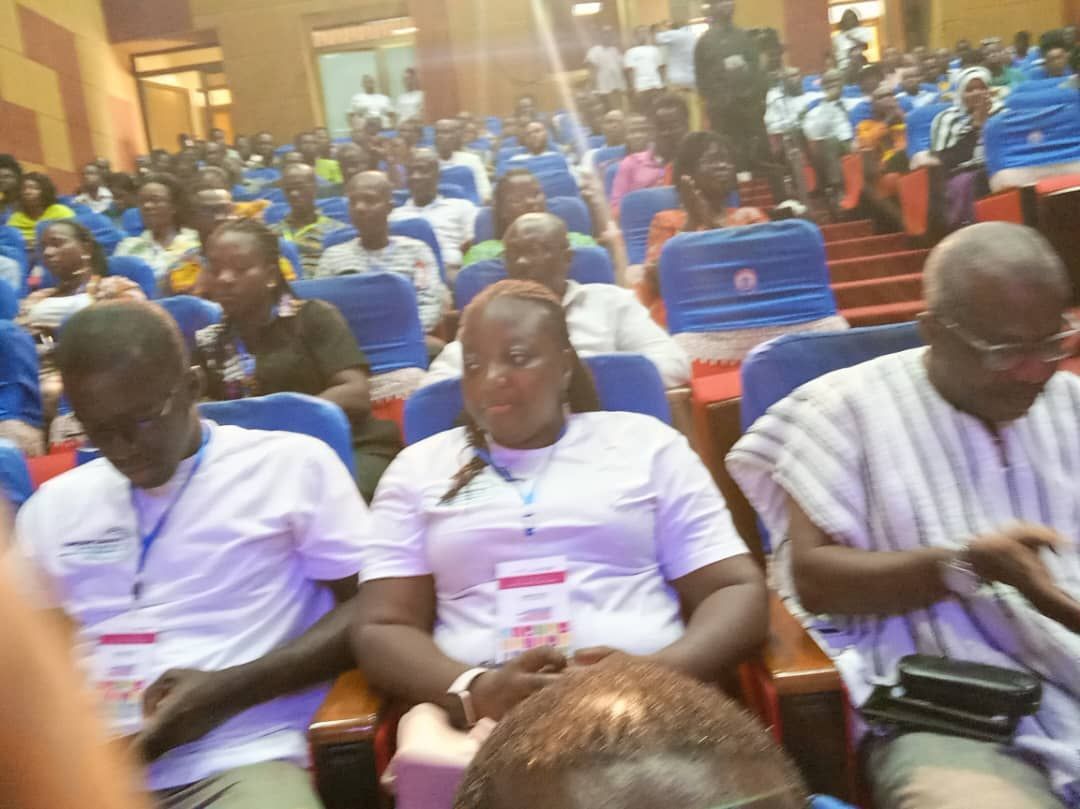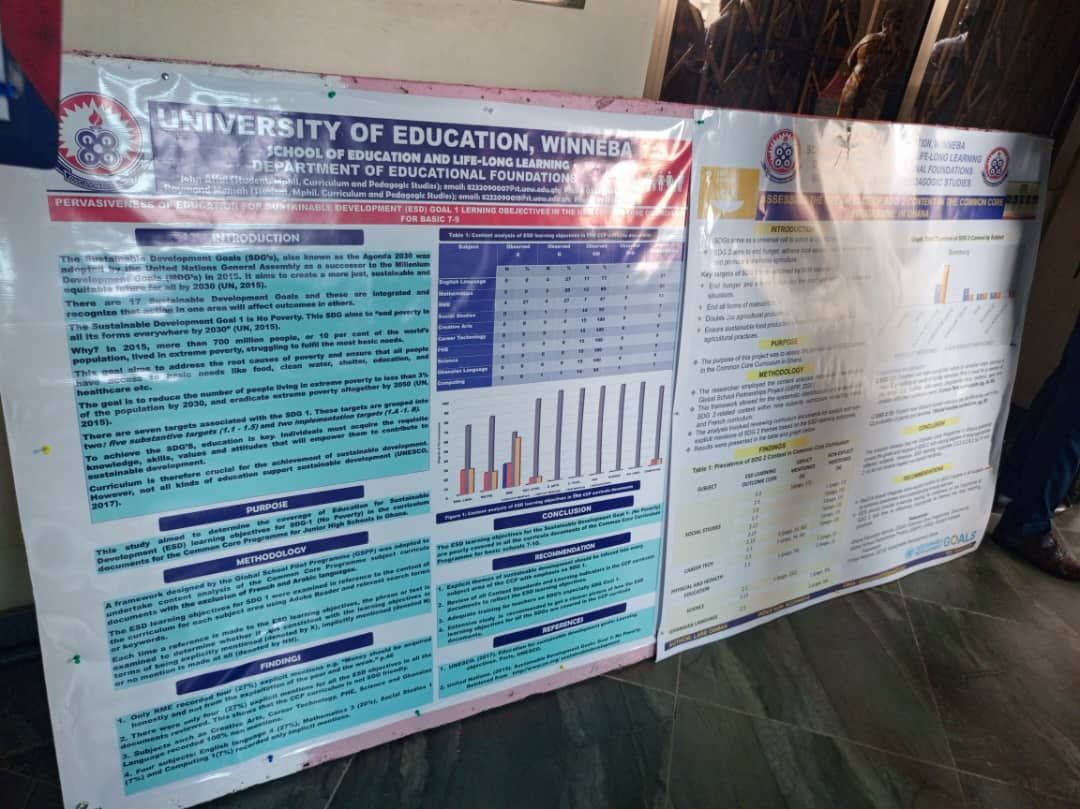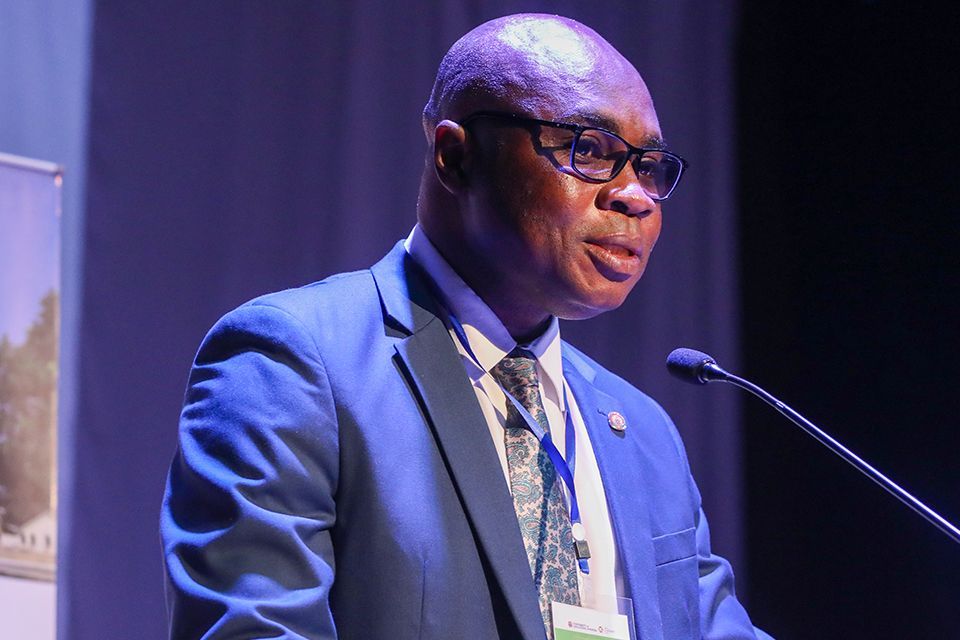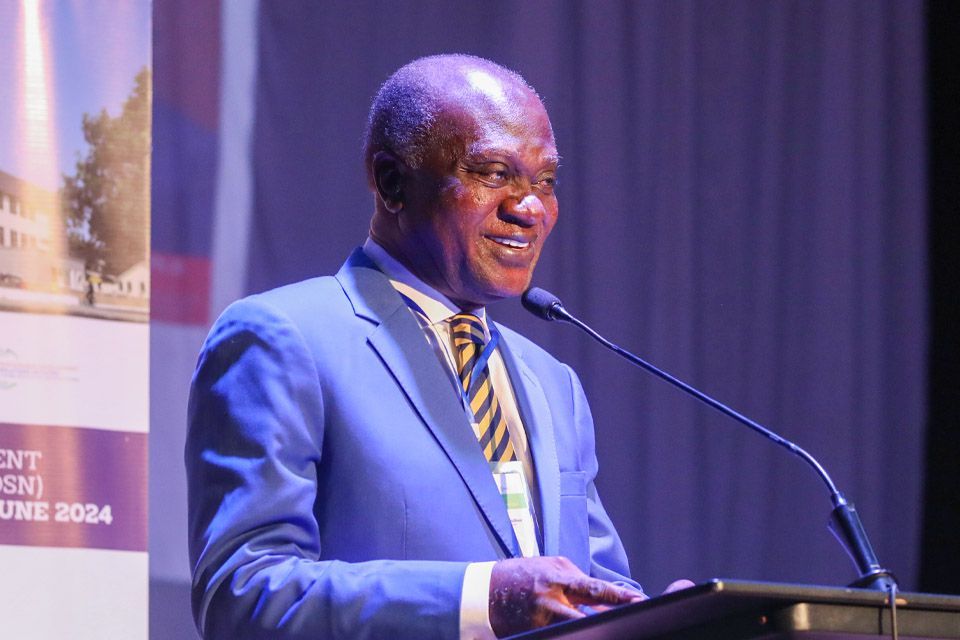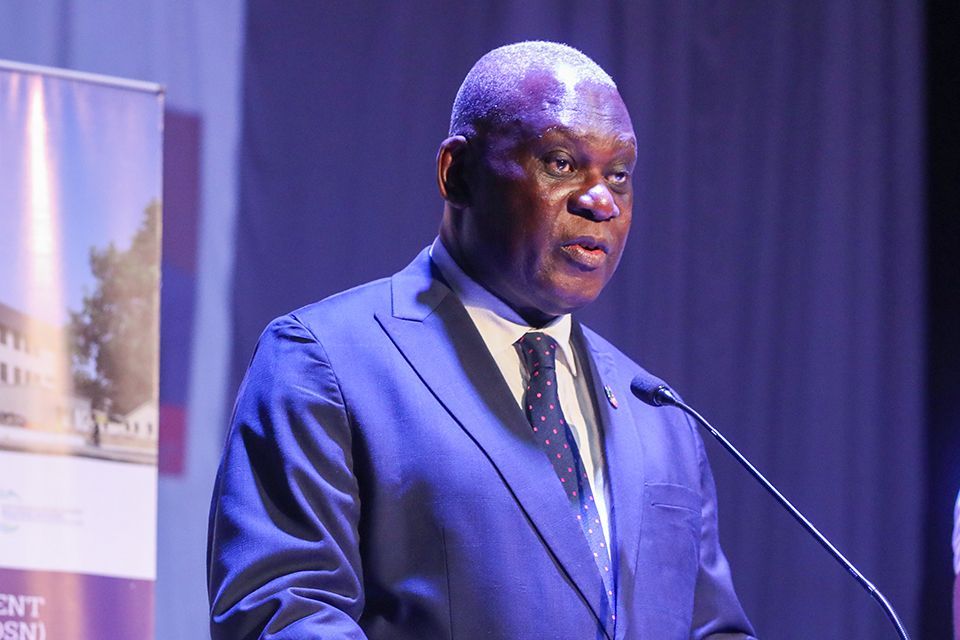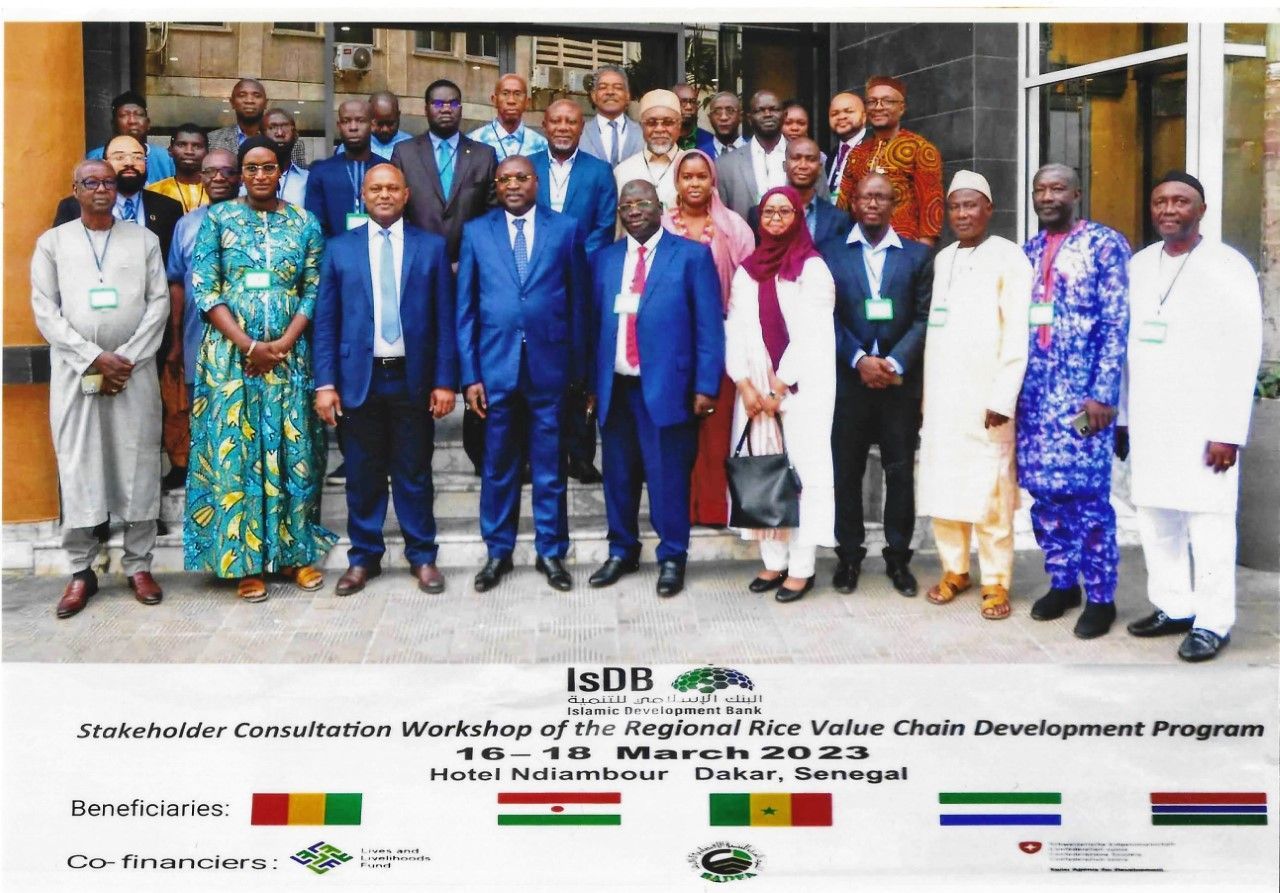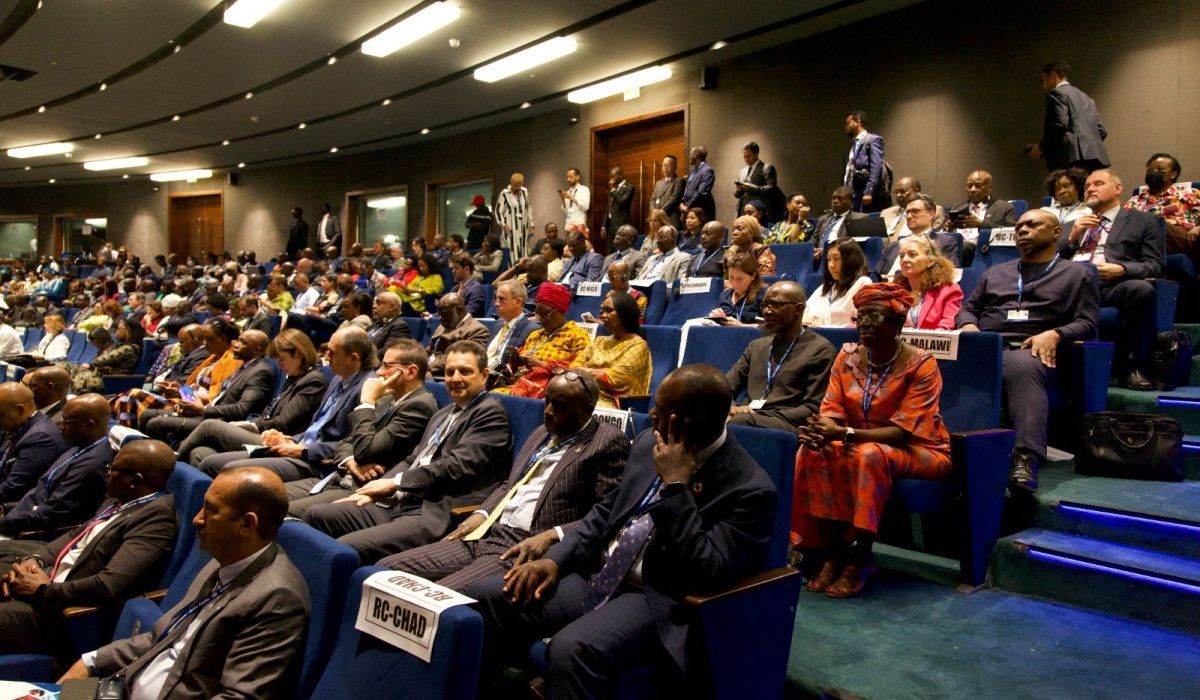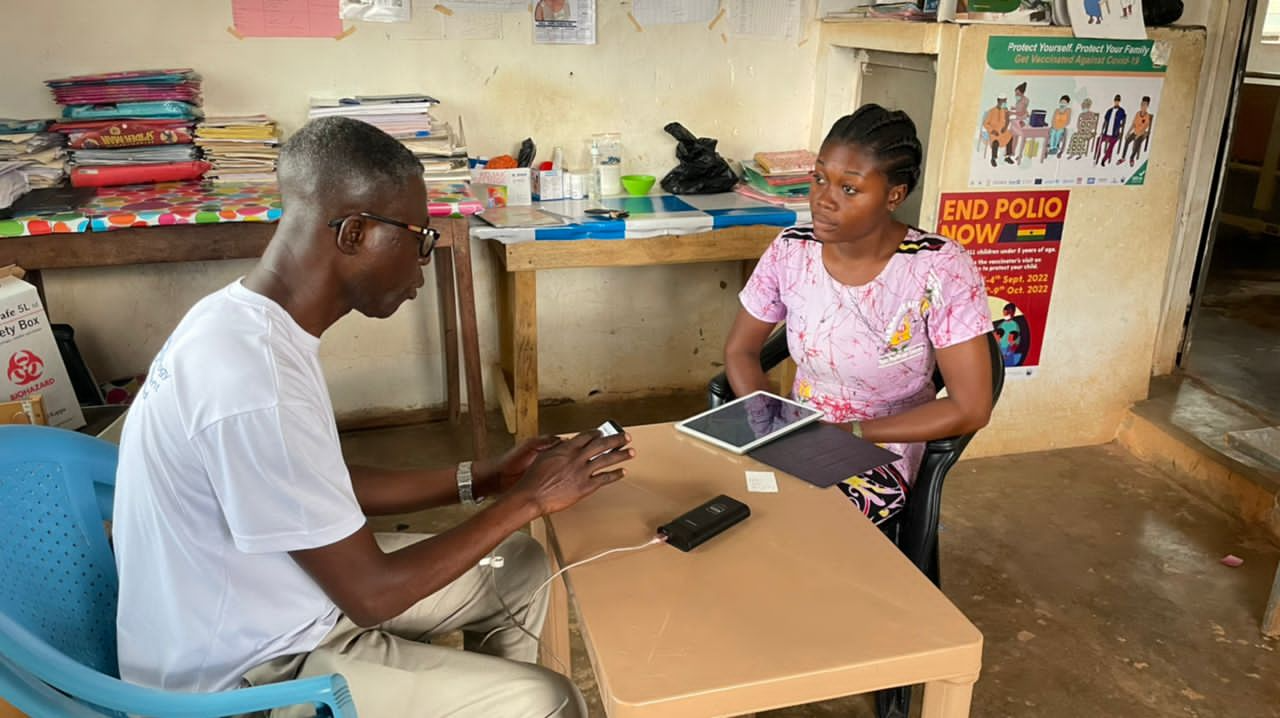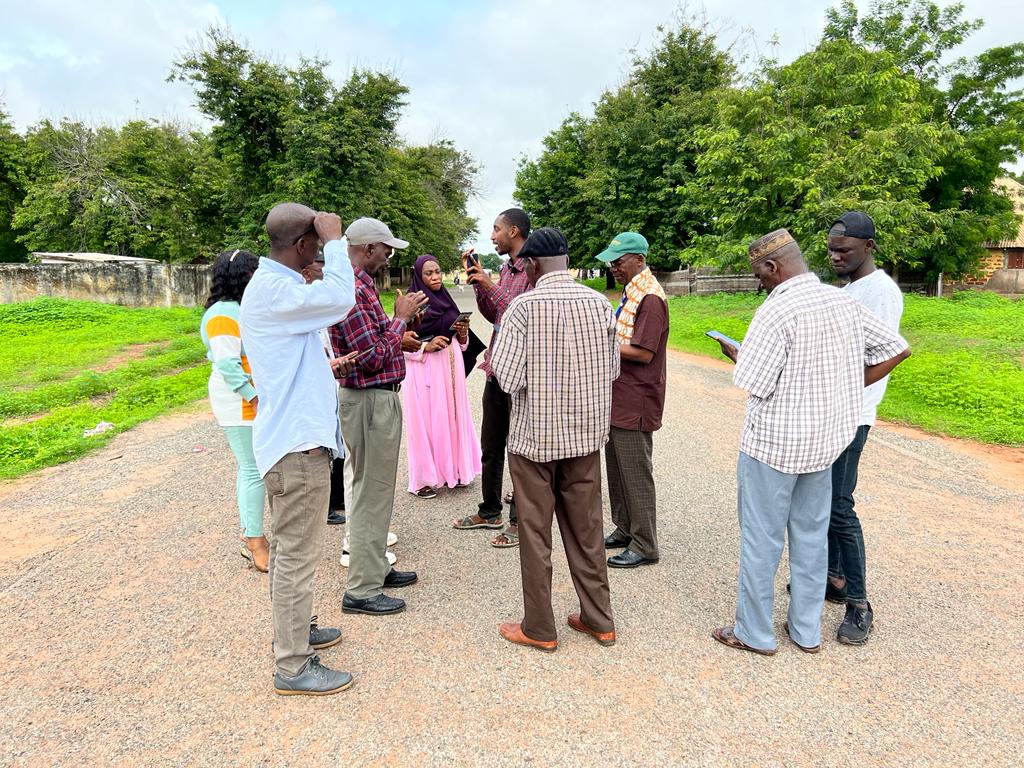2024 SDSN Ghana International Symposium
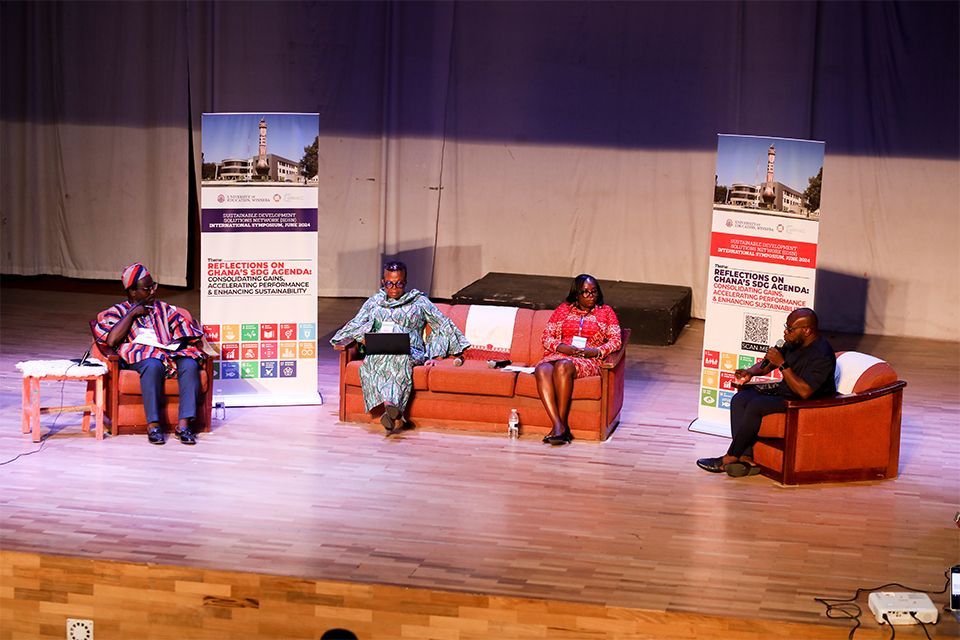
The University of Education, Winneba (UEW), in collaboration with the Sustainable Development Solutions Network (SDSN), Ghana hosted the maiden international symposium on SDGs on Wednesday June 19, 2024. The symposium used a participatory approach to engage a wide range of stakeholders to discuss, review and share data on Ghana’s SDGs achievements. Some of the issues discussed included Climate change, eco-sustainability and livelihood through the prism of the SDGs, Achieving sustainability through innovation, technology and empowerment, leveraging technology, innovation and digitalization to initiate new possibilities on the SDGs in Ghana and a panel discussion on empowering communities to own the SDGs through school curricula and social campaign.
Prof. Stephen Jobson Mitchual, Vice-Chancellor (known elsewhere as President) of UEW, in his welcome address emphasized the university's commitment to sustainability through education, research, and community engagement. He highlighted the partnership between UEW and SDSN as a testament to their dedication to sustainable development. Prof. Mitchual expressed UEW's readiness to collaborate with other universities globally to mobilize scientific and technological expertise and resources for implementing the SDGs.
Prof. Yaw Gyan Baffour, Chairman of NDPC, for his part, recognized the efforts of successive governments of Ghana in crafting economic policies aimed at achieving the SDGs. He pointed out the persistent economic challenges exacerbated by external shocks and stressed the need to reassess past economic policies to safeguard Ghana's economy. Prof. Gyan Baffour also introduced NDPC's long-term development framework, targeting Ghana's transition to an upper-middle-income country by 2057, and urged political parties to align their future manifestos with this vision.
Dr. Kodjo Esseim Mensah Abrompa, Director-General of NDPC, delivered the keynote address, acknowledging Ghana’s progress in achieving over 60% of the SDGs. He highlighted significant achievements in poverty reduction, health, and technology while acknowledging the need for continued efforts to meet all the goals. He identified numerous areas for sustainable solutions and called upon the University Chapter to begin work on them using communication as a tool.
The Special Presidential Advisor on SDGs, Dr. Eugene Owusu, called for increased investment in research and innovative financing to bridge the financial gap impeding SDG implementation. He urged participants and the government to leverage emerging technologies and innovation across all sectors to achieve the SDGs.
Exhibition
As of the activities, an exhibition of posters depicting integration of the 17 SDGcs into Basic school curriculum of Ghana was mounted by a team of 21 graduate students from the Department of Educational Foundations of the University. The students gave a comprehensive analysis of the curriculum using the lens of the SDG.\
Goodwill Message
Prof. Jeffrey Sachs, sent the house a goodwill message from abroad. He expressed his appreciation for the organization of the symposium, briefly highlighted some important events at the international front and applauded Ghana’s efforts at making quality education accessible for all. He argued that because quality education was pivotal in the attainments of the rest of the SDGs, the efforts of the government to make education more accessible to all is highly commendable.
Bridging the Gap on Climate Change
Professor Simon Mariwah, from the University of Cape Coast, led a session and made a comprehensive presentation on the complexities of climate change and eco-sustainability. His analysis focused on the practical implementation of SDG policies, exploring the challenges and opportunities that lie ahead for Ghana. This in-depth examination sparked lively discussions among participants, fostering a collaborative environment to bridge the gap between policy pronouncements and real-world action for a more sustainable future.
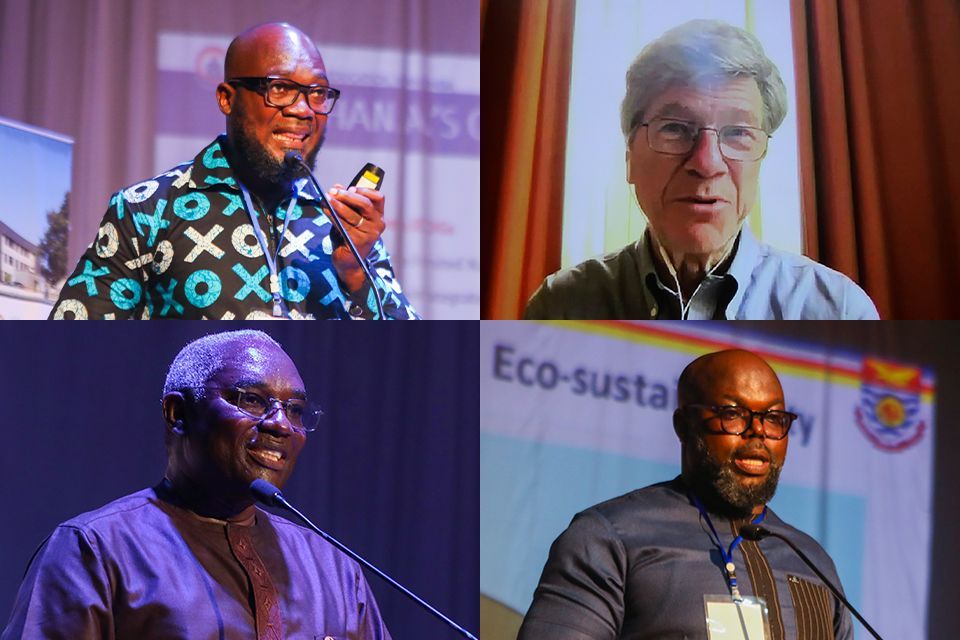
Technological Advancements: Powering Progress Towards Sustainability
Professor Benjamin Ghansah, a leading IT expert from UEW presented an in-depth examination of how innovation and technology can be harnessed to propel progress towards achieving the SDGs. He specified technological advancements with the potential to revolutionize various sectors, such as renewable energy solutions, sustainable agricultural practices, and data-driven resource management. He provoked dispassionate and lively discussions among participants on practical application of technology and the crucial role in creating a more sustainable future.
Empowering Communities
The climax of the event was marked by a panel discussion which featured Professor Eric Ananga, Professor Esther Danso-Wiredu, and Educationist Mrs. Joyce Larnyoh. Panelists delved into how school curriculum could be revamped by integrating SDG principles to foster a generation of environmentally conscious citizens. The conversation highlighted the power of social campaigns in raising awareness, mobilizing communities, and ensuring active participation in developing sustainable solutions to the numerous problems facing the world. This session offered valuable insights into the critical role empowered communities can play in driving sustainable development.
Closing Remarks and Take away
The representative from the Millennium Promise Alliance (MPA) provided a comprehensive overview and takeaway session; summarizing the key themes and actionable strategies that emerged throughout the day's discussions. His closing remarks emphasized the importance of continued collaboration, knowledge sharing, and unwavering commitment to translate the valuable insights gleaned from the symposium into concrete action. The session undoubtedly served as a powerful call to action, urging participants to champion sustainability solutions within their respective spheres of influence.
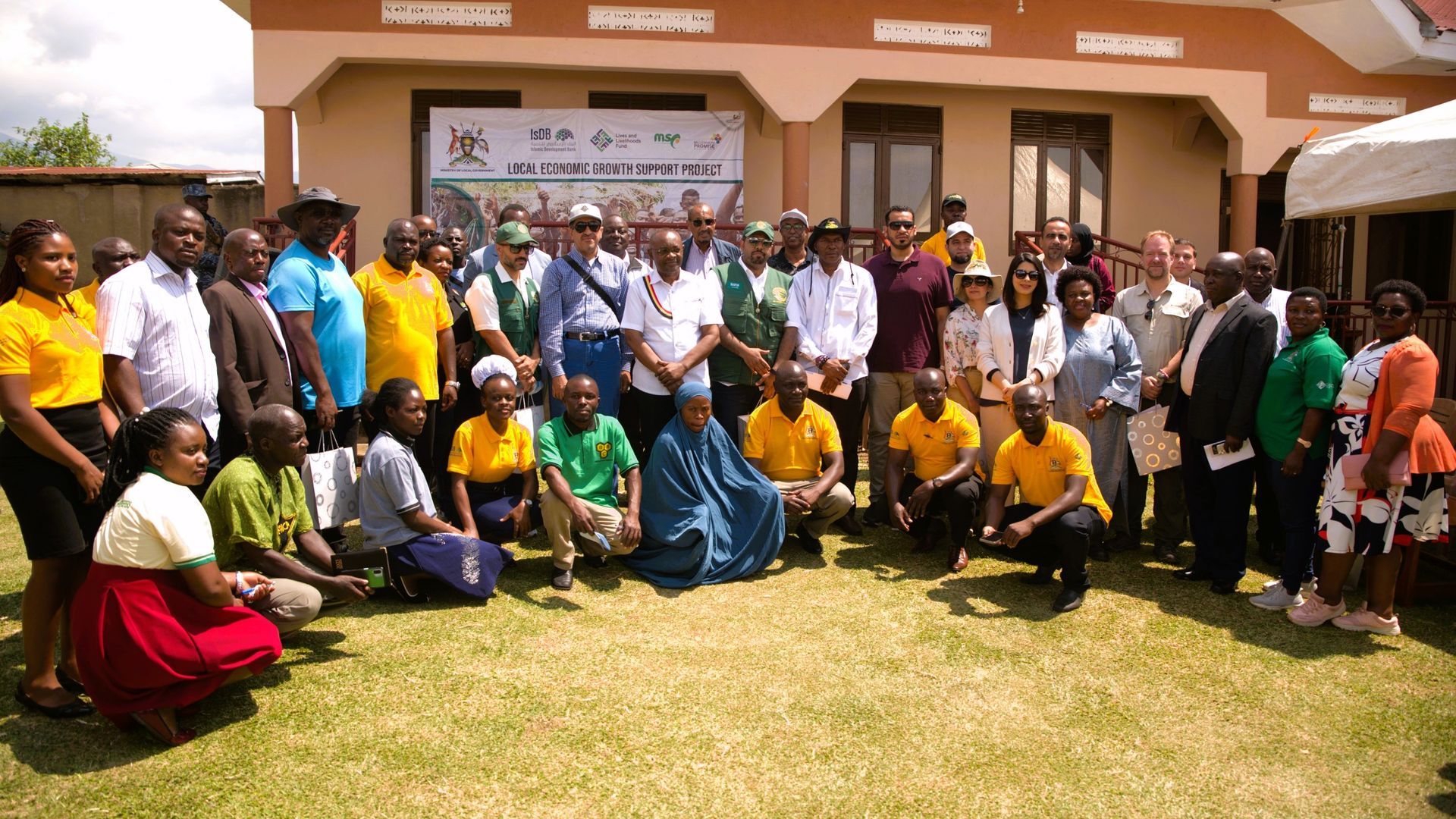
Lives and Livelihoods Fund Engages with Ugandan Officials to Boost Economic Growth and Food Security
